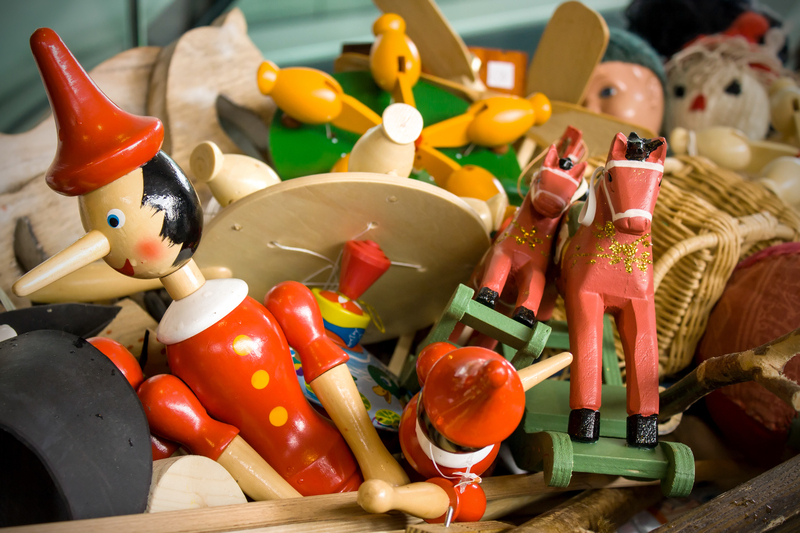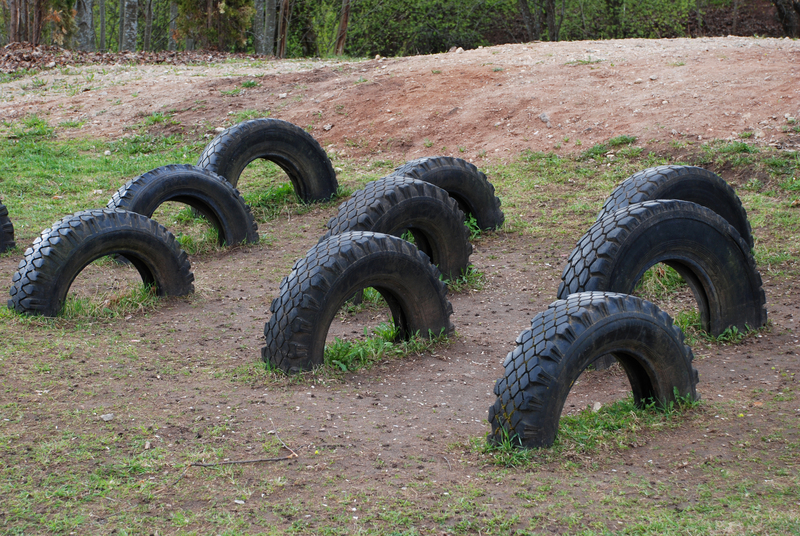Cost-Effective Ways to Deal with Big, Unwanted Household Items
In every household, bulky and unwanted items can quickly accumulate, taking up precious space, hindering your movement, and sometimes even causing stress. Disposing of large household items such as old furniture, broken appliances, mattresses, and even outdated electronics often seems like a daunting and costly task. However, it doesn't have to be! In this comprehensive guide, you'll learn cost-effective ways to deal with big, unwanted household items--helping you save money, reduce waste, and reclaim your living space.
Table of Contents
- Identifying Unwanted Bulky Items
- Preparing Items for Disposal or Reuse
- Donating Gently Used Large Items
- Selling Your Furniture and Appliances
- Giving Away Big Household Items Locally
- Recycling Large Household Items Responsibly
- DIY Repurposing and Upcycling Ideas
- Using Municipal Bulk Pickup Services
- Exploring Low-Cost Junk Removal Options
- Avoiding Hidden Fees and Environmental Impact
- Final Thoughts
Identifying Unwanted Bulky Items
The first step in dealing with big, unwanted household items is to identify what needs to go. Review each room, garage, basement, or attic in your house and make a list. Common examples include:
- Sofas, couches, and recliners
- Mattresses and box springs
- Old tables, bedsteads, wardrobes, and bookshelves
- Broken or outdated televisions and electronics
- Large kitchen appliances: refrigerators, stoves, washing machines
- Carpets and rugs
Being systematic in your approach can help you manage this process smoothly and avoid getting overwhelmed.
Preparing Items for Disposal or Reuse
Before you move any item out of your home, make sure to prepare them appropriately to save time, effort, and potentially extra costs:
- Clean and sanitize items to make them more appealing for sale or donation.
- Disassemble furniture if possible--this makes transportation easier and may even save on disposal fees.
- Check manufacturer guidelines for electronics or appliances on proper disposal methods.
Taking the time to properly prep each item could easily increase your chances of finding a cost-effective solution for unwanted household items.
Donating Gently Used Large Items
Good Deeds with Big Things--Charity Donations
Often, one person's clutter is another's treasure. If your large items are still in good, usable condition, consider donating them to local charities or non-profits. This approach is environmentally friendly and helps those in need.
Popular organizations that often accept bulky household donations include:
- Habitat for Humanity ReStores - Accepts gently used furniture and some appliances. Profits support affordable housing projects.
- The Salvation Army - Large items can be dropped off or picked up in select areas.
- Goodwill - Some stores welcome furniture, household items, and electronics. Check your local branch for details.
- Local shelters, churches, or thrift stores - Many community centers accept furniture and bedding for families transitioning to new homes.
Cost-Effective Tip: Many of these organizations offer free pickup services--making donation a practical way to get rid of big, unwanted household items with zero out-of-pocket costs.
Selling Your Furniture and Appliances
Put Cash Back in Your Pocket
If your large items are still in good shape, why not make some money? Selling unwanted bulky household goods is easier than ever thanks to online platforms:
- Facebook Marketplace and local Facebook buy/sell groups
- Craigslist, which has a "free" and "for sale" section for each city
- OfferUp and LetGo apps
- eBay Local Pickup for specialty items
- Nextdoor for hyperlocal exchanges
- Consignment shops or secondhand dealers for quality furniture
Take quality photos, add a clear description, and set a reasonable price. Remember to mention if the buyer has to pick up the item--this saves you time and hauling costs.
Extra Tip: If you're in a hurry, consider listing your item for free--many people will pick up items swiftly, saving you the disposal expense.
Giving Away Big Household Items Locally
Sometimes, all you need is the space--and not necessarily cash. Giving away big items for free can be an incredibly cost-effective way to handle unwanted furniture and appliances.
- Use the "Curb Alert" feature on Craigslist or simply leave your item on the curb with a "free" sign (if municipal rules allow).
- Post in local community online groups, such as Buy Nothing Project or neighborhood forums.
- Contact local theaters, schools, or art collectives that may need large furniture or props.
- Spread the word with friends, family, or neighbors before resorting to disposal services.
Giving items away free not only saves you money, but also ensures your household goods stay out of landfills and find a new home.
Recycling Large Household Items Responsibly
Green Solutions For Your Waste
Many household items, particularly appliances and electronics, should never be dumped in the trash due to hazardous components. Recycling bulky household items is often a low or no-cost solution, and helps the environment by reducing landfill waste.
- Contact your city or county for scheduled recycling collection days for appliances and metal furniture.
- Check with local electronic recycling centers or retailers (such as Best Buy or Staples) for drop-off programs.
- Tire shops, mattress companies, or home improvement stores may offer recycling for carpets, mattresses, or even large plastic furniture pieces.
- Scrap metal yards can sometimes take large metal objects for free--or even pay you!
Cost-Effective Tip: Always call ahead to check if there are any fees, and what preparation (such as removing doors from old refrigerators) may be necessary.
DIY Repurposing and Upcycling Ideas
If creativity is your hobby, consider repurposing big, unwanted household items instead of tossing them out. Upcycling isn't just cost-effective--it can also result in one-of-a-kind home decor or furniture!
- Transform an old door into a unique headboard or table.
- Refinish a worn dresser for use as a bathroom vanity or storage piece.
- Convert a TV armoire into a crafting station or children's play kitchen.
- Break down unsalvageable furniture to harvest wood, hardware, or fabric for future projects.
- Reupholster or paint old chairs to give them new life.
Not only will you save on potential disposal fees, but you'll also boost your home's style and functionality.
Using Municipal Bulk Pickup Services
The City's Help For Your Heaviest Trash
Most municipalities offer bulk pickup services for large household items. This is often the most affordable way to get rid of big things, with either no fee or a small per-item charge.
- Look up your local public works or sanitation department website for bulk pickup schedules and requirements.
- Some cities require advance scheduling for appliance or furniture pickup, while others have regular "bulk trash" days.
- Make sure to follow preparation guidelines (e.g., tie mattresses in plastic, remove fridge doors).
- Verify which items are accepted and which must be disposed of separately.
Tip: Use this option well in advance of moving or renovating, as wait times can be several weeks.
Exploring Low-Cost Junk Removal Options
When DIY solutions aren't feasible, professional junk removal companies provide a convenient way to get rid of large and difficult-to-move household items. However, prices can vary widely, so it pays to compare:
- Contact multiple junk haulers for quotes--some offer discounts for curbside pickup or grouped items.
- Check local startups or one-person businesses, who may charge less than big national chains.
- Some companies offer reduced rates for donation-eligible or recyclable items, keeping costs down.
- Look for coupon deals online, or share a pickup with a neighbor to split costs.
Ensure that the company is licensed and insured, and ask for an itemized quote beforehand to avoid surcharges.
Avoiding Hidden Fees and Environmental Impact
It's tempting to just toss large items in the landfill, but not only is that expensive--it can also be harmful to the environment. Here's how to keep costs and your ecological footprint low:
- Never dump items illegally, as fines can be hefty, and it damages local ecosystems.
- Understand landfill or dump fees--most charge by weight or item type (appliances, electronics, mattresses can be extra).
- Always remove hazardous materials like batteries or freon from appliances before disposal.
- Check your city's hazardous waste collection events for items like paint, chemicals, or electronics.
- Ask if you can donate, recycle, or part out items rather than pay for disposal.
The more you can redirect your unwanted household items from the landfill, the more money and hassle you'll save--with the added bonus of benefiting your community and the environment.
Final Thoughts: Save Money and Space When Disposing of Large Household Items
Dealing with large, unwanted household items doesn't have to eat up your budget. Whether you're clearing out for a move, decluttering, or remodeling, there are several cost-effective, eco-friendly solutions available:
- Donate whenever possible to local charities or community projects.
- Sell reusable items online for extra cash.
- Give away large items through neighborhood groups or curb alerts.
- Recycle responsibly to minimize environmental harm.
- Repurpose creatively for one-of-a-kind results.
- Utilize municipal bulk pickup services for the lowest disposal fees.
- Shop around for affordable junk removal companies when DIY isn't an option.
With a bit of effort and planning, you'll reclaim your space, save money, and help your community. The next time you need to get rid of big, unwanted household items, remember--you have more options than you think!
Did this guide help you find a cost-effective strategy for removing bulky household items? Share your own creative solutions in the comments below!


